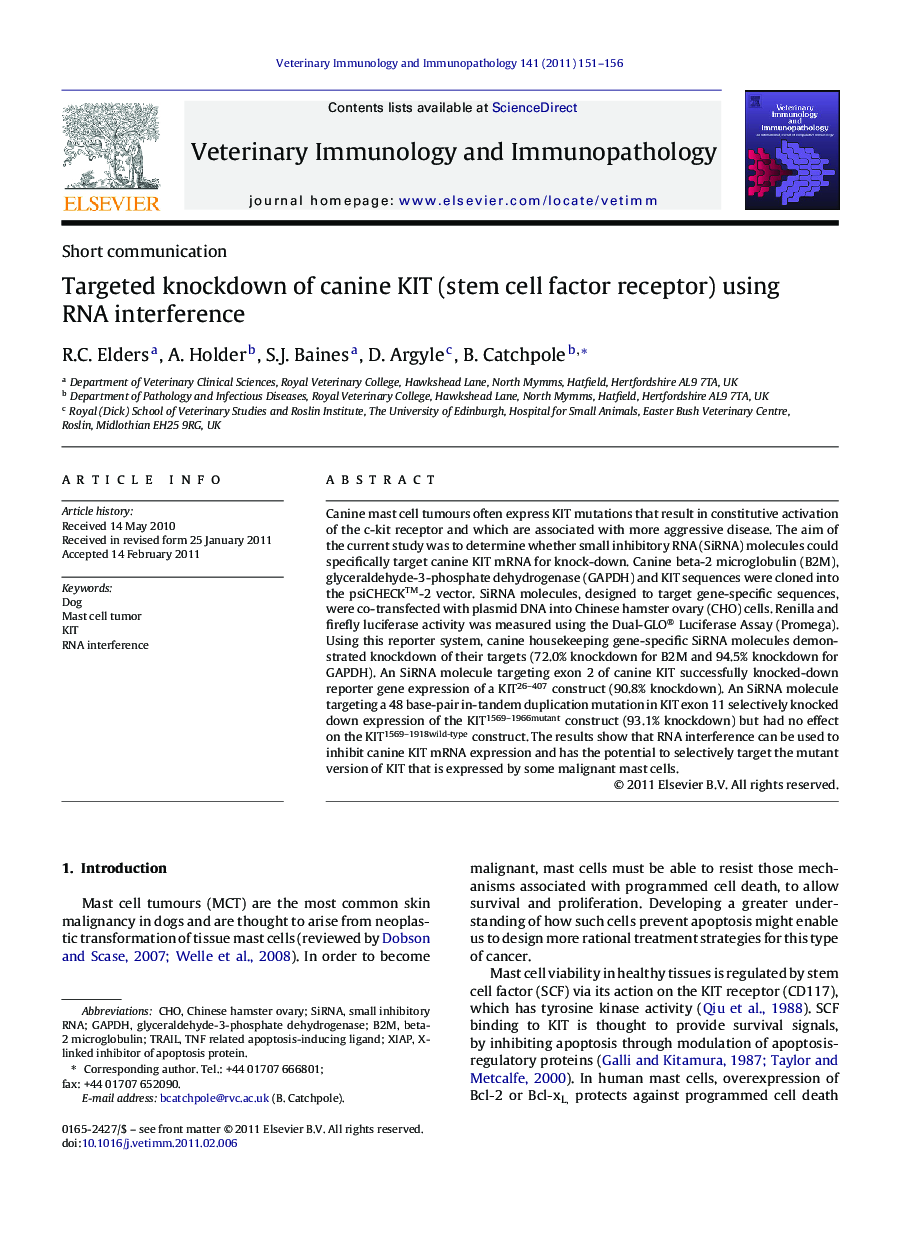| Article ID | Journal | Published Year | Pages | File Type |
|---|---|---|---|---|
| 2462191 | Veterinary Immunology and Immunopathology | 2011 | 6 Pages |
Canine mast cell tumours often express KIT mutations that result in constitutive activation of the c-kit receptor and which are associated with more aggressive disease. The aim of the current study was to determine whether small inhibitory RNA (SiRNA) molecules could specifically target canine KIT mRNA for knock-down. Canine beta-2 microglobulin (B2M), glyceraldehyde-3-phosphate dehydrogenase (GAPDH) and KIT sequences were cloned into the psiCHECK™-2 vector. SiRNA molecules, designed to target gene-specific sequences, were co-transfected with plasmid DNA into Chinese hamster ovary (CHO) cells. Renilla and firefly luciferase activity was measured using the Dual-GLO® Luciferase Assay (Promega). Using this reporter system, canine housekeeping gene-specific SiRNA molecules demonstrated knockdown of their targets (72.0% knockdown for B2M and 94.5% knockdown for GAPDH). An SiRNA molecule targeting exon 2 of canine KIT successfully knocked-down reporter gene expression of a KIT26–407 construct (90.8% knockdown). An SiRNA molecule targeting a 48 base-pair in-tandem duplication mutation in KIT exon 11 selectively knocked down expression of the KIT1569–1966mutant construct (93.1% knockdown) but had no effect on the KIT1569–1918wild-type construct. The results show that RNA interference can be used to inhibit canine KIT mRNA expression and has the potential to selectively target the mutant version of KIT that is expressed by some malignant mast cells.
